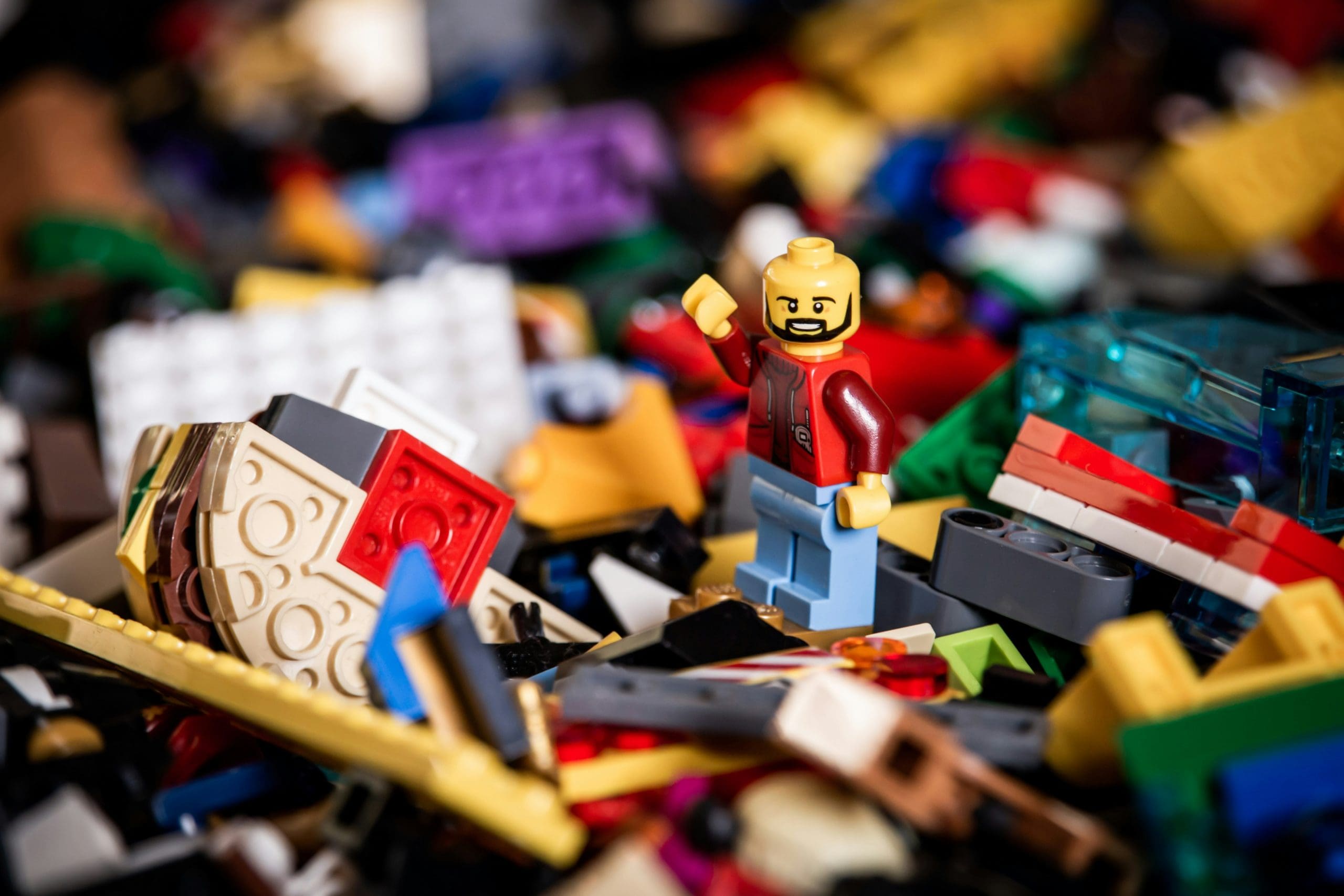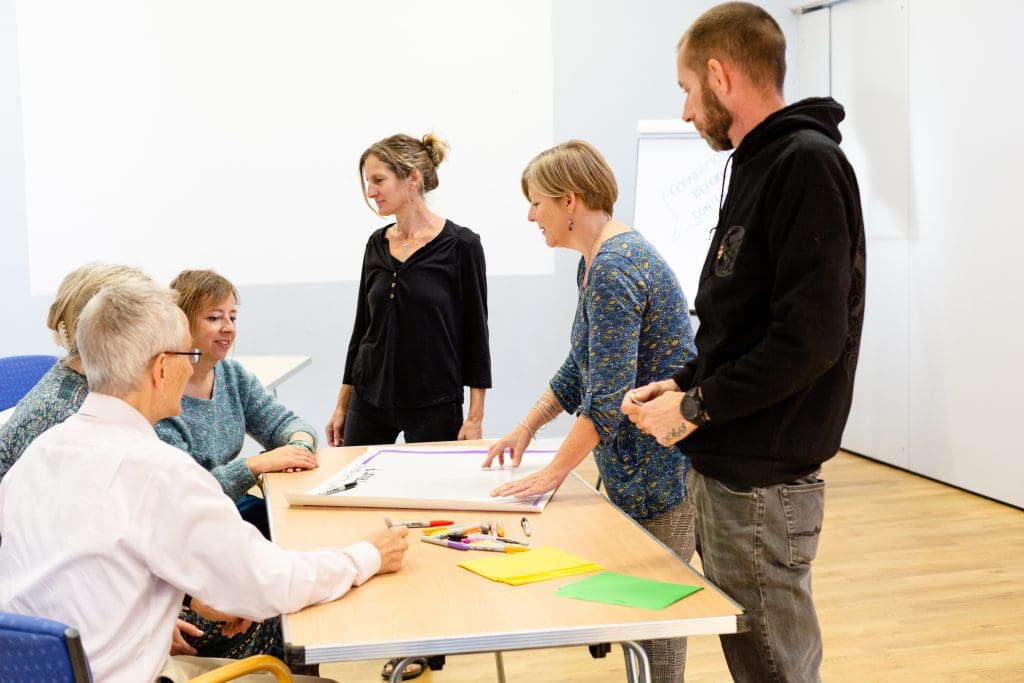When we think about play we usually think about something we do just for fun. It’s something that kids do. They inherently have a culture of play.
It’s not something that crops up often in the context of work. You may have some horrors lurking in the back of your mind as you recall some enforced fun from a team building session or two gone horribly wrong.
But you probably don’t think of play as an integral part of what you do or who you are in the workplace.
By which we mean the culture of your organisation. The way you do things, the stuff that binds you together and the core identity of your company. It is often hard to define and might lie a bit neglected like that piece of Lego under your bed. Sometimes you need to focus in on your team culture, dust it off a bit (like that same piece of Lego) and give it a boost of status. A strong team culture is one of the really core things that will help you work together, understand what is important to you and enable you to all pull in the same direction.
Which leads on to the question of what we mean by a culture of play?
There are so many hidden advantages of play. Understanding them, and including playfulness in your day to day is part of having a culture of play. It is about making sure that play is seen as something positive, useful and productive, allowing it to be part of business as usual. It doesn’t mean that your company culture is all about play, it means that you value the opportunities to play and that you allow people to be playful.
Why is a culture of play so important?
Being able to play allows people to think differently and explore the boundaries of what might be possible beyond the tried and tested ways that you might normally do things. Play allows us to investigate different perspectives and ideas which are key to being able to evolve and adapt in the world we live in.
Being able to play in different ways allows people to be more in flow and focused. It removes a lot of the fear of getting things wrong. Play is a great vehicle for conversations and is a good way for everyone to get stuck in together. It can stimulate new solutions to problems and allows people to experiment in ways that just focusing on the “work” might not permit. Whether a collaborative or individual activity, the freedom that play can give our brains is invaluable, supporting wellbeing as well as innovation.
What might this look like?
One of the important things to remember is that play is different for different people. What is freeing, creative and enjoyable for one person, might be excruciating for someone else. So it is not about making your team members ‘play on demand’, rather giving them the space to play in their own way.
It is about adopting the attitude that play is useful and can open up new ways of thinking. Not just a waste of time or something to do instead of work. Give people the chance to play with ideas and with different ways of approaching things without judgement.
Celebrate trial and error and allow for discoveries to be made outside the specified job description or remit. When it is play time, take a step back to see what might happen. This mindset will move your people from being ‘just’ productive to becoming expert explorers and innovators.
It’s all well and good saying that you value a culture of play but walking the talk is important. When you actively participate in the very activities that you are introducing, you are showing your willingness to explore new ideas, make mistakes and be creative. This is the best way to encourage others to play seriously. It shows that you truly value creativity and innovation.
This might be about creating playful spaces at work, or simply making time for that play to happen. If you are working from home you’ll know how easy it is to spend way too much time looking at a screen. How would it be if you were told to take some time away to play for a bit? Or given a creative challenge to do for a certain period of time.
There are certainly plenty of ways to make your meetings more playful and ultimately more productive in the process (we all love to hate meetings).
Why not spend ask your team what they might value in terms of time to play, or set up a play day to explore and find out. Ask the question “What can we do as an organisation to build more play into our day to day?”.
Bringing play into a workshop or away day needs to be done well. It’s important to find the right balance of play, incorporated into the “serious” stuff rather than just tacked on in an additional session of rock paper scissors at the start of the day.
The benefits of a culture of play are clear.
When you embrace a culture of play, it leads to increased engagement, motivation and connection to work and to the organisation. The idea that play is okay allows problems to be seen as a chance to innovate, rather than an obstacle to fight through. The playful culture creates a sense of belonging for everyone. It allows everyone to think about the bigger picture and company goals while enjoying their work. Who doesn’t want that?
A culture of play isn’t about turning work into a playground. Instead, it’s about consciously building an environment where you get the best out of your people. A culture of play creates a sense of fun and exploration in the work people do. Playfulness allows people and ideas to be nurtured and celebrated as they do their best work.
And to the person that says they don’t like playing? Find out what really floats their boat. What do they like to do when they have time and space? It may just be that you haven’t framed play in a way that suits them. Remember this is not about enforced fun and everyone is different.
We are pleased to be able to offer Lego Serious Play® as an option in our workshops and Away Days. If you’d like to explore this, or any other kind of Away Day, get in touch! We specialise in bringing fun to the serious matter of teams without leaving anyone feeling pressured to ‘enjoy themselves’.



